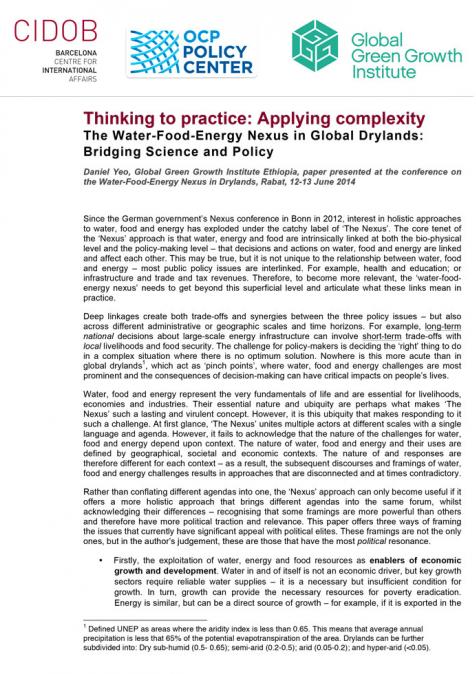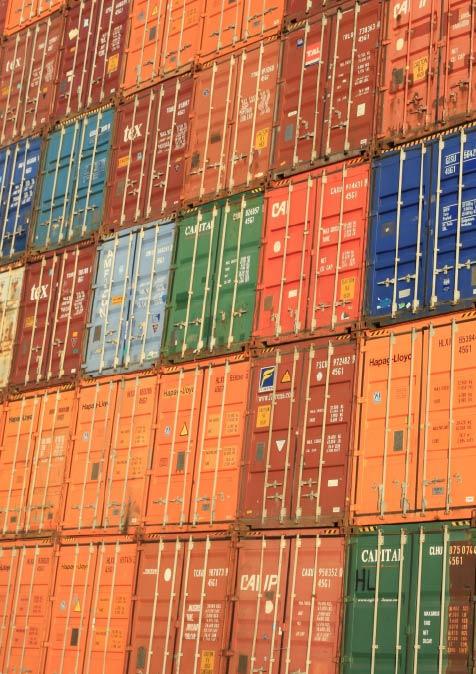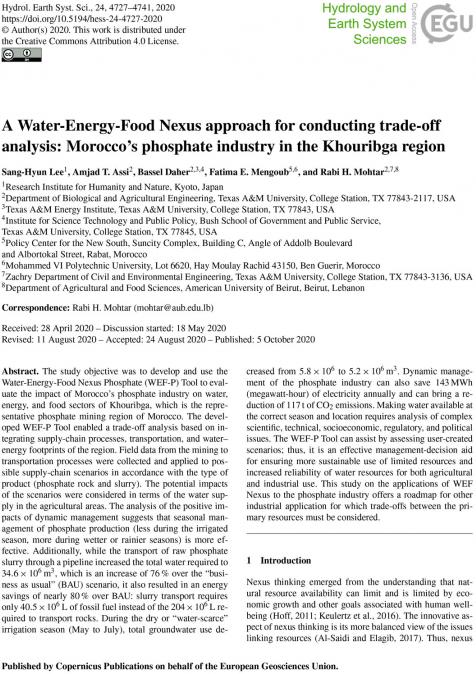Publications /
Policy Paper
Since the German government’s Nexus conference in Bonn in 2012, interest in holistic approaches to water, food and energy has exploded under the catchy label of ‘The Nexus’. The core tenet of the ‘Nexus’ approach is that water, energy and food are intrinsically linked at both the bio-physical level and the policy-making level – that decisions and actions on water, food and energy are linked and affect each other. This may be true, but it is not unique to the relationship between water, food and energy – most public policy issues are interlinked. For example, health and education; or infrastructure and trade and tax revenues. Therefore, to become more relevant, the ‘water-foodenergy nexus’ needs to get beyond this superficial level and articulate what these links mean in practice.












